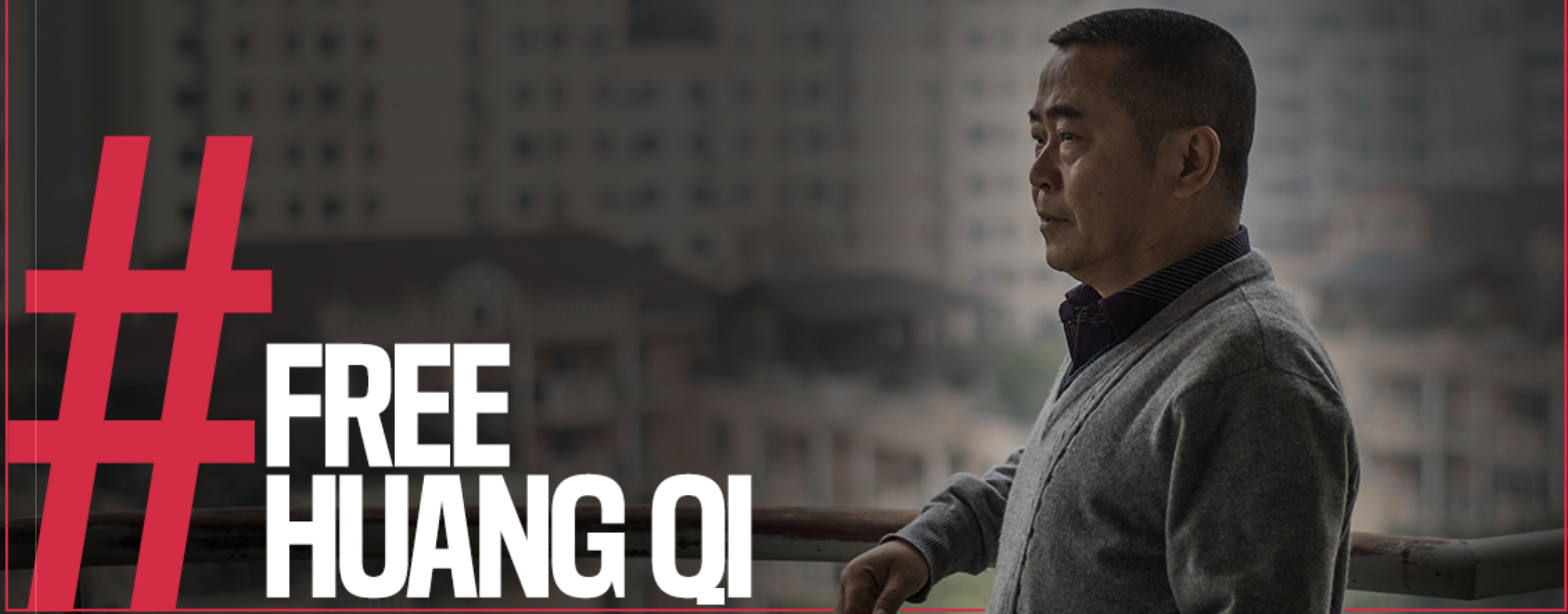China: RSF urges for release of ailing investigative journalist Huang Qi on the sixth anniversary of his arrest
Photo Credits: RSF
Reporters Without Borders (RSF) urges for the release of ailing investigative journalist and 2004 RSF Press Freedom Award laureate Huang Qi, who was arrested six years ago and is at high risk of dying if kept in detention.
“Huang Qi, a seasoned Chinese journalist and the founder of independent media 64 Tianwang, has been detained since 2016 in retribution for his courageous investigations on the regime’s corruption and human rights abuse and was repeatedly subjected to torture and ill treatment. RSF calls for Huang’s immediate release alongside all other journalists and press freedom defenders detained in China.
Cédric Alviani
Reporters Without Borders (RSF) East Asia Bureau Head
Monday, 28 November 2022 marks six years since 59-year old Chinese investigative journalist Huang Qi, laureate of the 2004 RSF Press Freedom Award, was arrested outside his apartment in the city of Chengdu. Huang, founder of the 64 Tianwang human rights news website that also won an RSF award in 2016, was sentenced to 12 years in prison on 29 July 2019 for “leaking state secrets'' and “providing state secrets abroad” following over two years of arbitrary detention and a closed trial.
During his entire career as a journalist, Huang had been actively reporting on corruption and human rights abuse cases in China, such as the 1989 Tiananmen Square Massacre and the government's response to the deadly 2008 Sichuan earthquake, and was sentenced to heavy prison terms multiple times.
Health deterioration and weight loss
At the time of his arrest on 28 November 2016, Huang suffered from a kidney ailment, heart disease and hydrocephalus. During a rare visit in 2018, Huang’s lawyer discovered the further deterioration of Huang’s health and significant weight loss. In the end of November 2022, Huang’s mother managed to finally see her son through a video call. Her previous meeting with Huang in January was abruptly cut off after merely two minutes.
In China, detained journalists are almost systematically subjected to mistreatment and denied medical care: Nobel Peace Prize and RSF Press Freedom Prize laureate Liu Xiaobo and dissident blogger Yang Tongyan both died in 2017 from cancer that was left untreated in detention, while Kunchok Jinpa, a leading source of information about Tibet for journalists, died in 2021 as a result of mistreatment.
In 2021 RSF published an unprecedented investigative report entitled The Great Leap Backwards of Journalism in China, which reveals the campaign of repression led by Beijing against journalism and the right to information worldwide.
China ranks 175th out of 180 in the 2022 RSF World Press Freedom Index and is the world's largest captor of journalists with at least 110 detained, including 11 in Hong Kong.
Source: RSF

